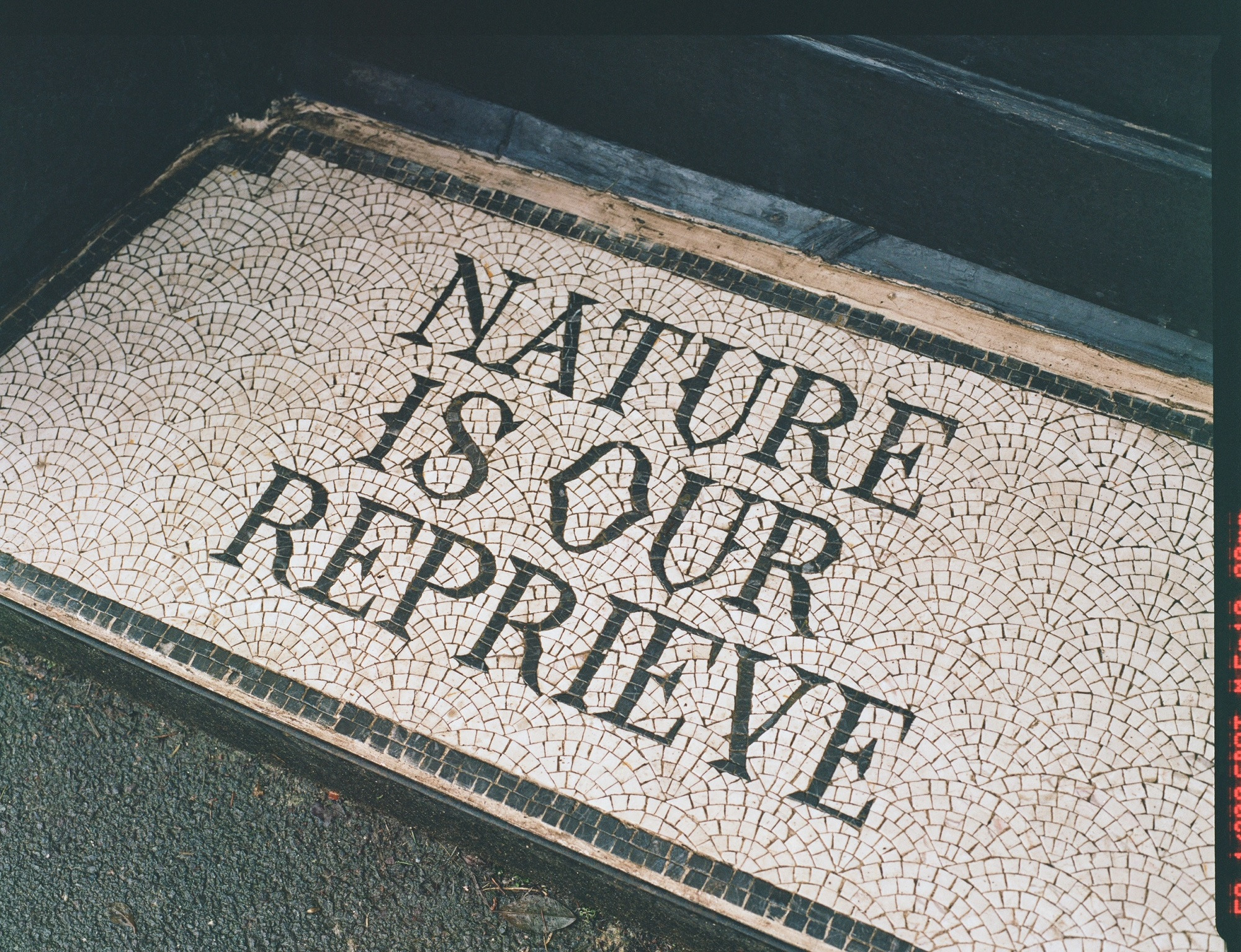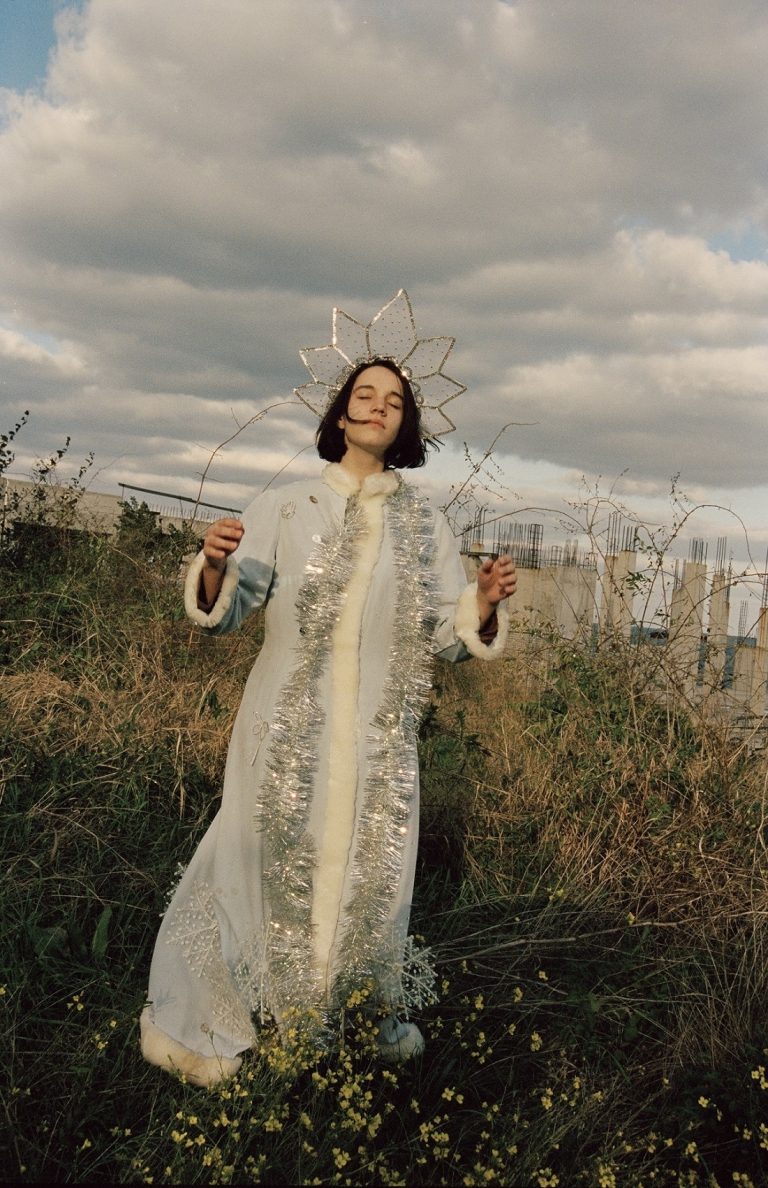
Odesa
Published: 2022/06/08
Updated: 2022/06/10
- Photography
- Yelena Yemchuk
- Interview
- Ira Lupu
Yelena Yemchuk: I first met you in Odesa in 2013. I can't believe that.
Ira Lupu: Oh my god.
It was 10 years ago.
No, really?
Yes! I was in Odesa, it was my second time, but my first real time. Somebody, I don't remember who, sent me an email that said, “This journalist would like to talk to you about Ukraine and photography.” I said, "Sure, why not?" I met you at a cafe that was outside of our apartment in the quietest, most beautiful street ever. We sat outside and started talking and I was like, “Wow, this girl is super, duper smart. How old is this child?” I think you were like 23.
You asked me the most interesting questions about how I felt about Ukraine, how I felt about working in the country, and we had the most incredible conversation. Then, after our conversation, you said, "Would you like me to show you some stuff?" And I said, "Yes." And you said, "Okay, come with us." And we made a plan to go to Kuyalnik.
Will you explain what Kuyalnik is?
There are two ways to explain it. It’s my favourite. The factual way would be that it's an old mud resort that’s sort of like the Dead Sea in Israel. It's an estuary with all this salt and is known for its healing properties. It used to be there even before the revolution in old times, even before the Soviet times in Ukraine, so it has a very rich history. It also served as a sanatorium and was a big thing to attend in Soviet time too. The real way to explain it, though, is that it's a time capsule. It’s a magical place, honestly.
It used to be a recreational place—it still is, actually. People stay there and get various beauty or therapeutic treatments if they have problems with their joints or reproductive health. The second attraction there is that you can go to the shore and cover yourself with this healing mud. People go there from all around Odesa to cover themselves with the mud and stay like mummies or sculptures, covered in this mud. It’s to help them heal.
You told me you had these dreams when you were small, especially after you immigrated from Ukraine to the US, and that you'd been in a borderland or dreamland in your head. This in-between place where you’d been having these visions. You also told me that you'd been in Prague and saw a play by Daniil Kharms, who was Russian but was executed by Russians—as often happens with intellectuals down there. You also told me a story about how you saw a surreal parade on the street with artists and actors playing the... I think it was the play by Daniil Kharms?
Yes, yes.
It kind of clicked with me after hearing your stories. I instantly felt some connection with what interested you about Odesa. I relate to this perception of the city because I've always said, as an Odessite myself—I lived in Odesa for probably 28 years of my life, so almost my full life—my perception of Odesa is that it's like an enchanted dreamland. It’s sometimes weird, sometimes funny, sometimes grim, sometimes super light and super fun, but definitely enchanted. I feel like that’s the best word to describe it.
That's how we made it to Kuyalnik! It was like a Fellini film—like 8½! In that film, the [main] character goes to take the waters and all this stuff happens. There are all these people covered in mud while having a picnic, then there's these ladies floating in the water. It was just this completely dreamy, bizarre place. I was like, okay, I need to photograph here, obviously.
That trip was my introduction to all the amazing, strange secrets Odesa has that aren't immediately in your face. My first discovery of the beginning of my love affair with the city. Then I came back with my family in 2015. I got in touch with you before I came and said, ‘Listen, I really want to start a new project—will you help me? Can you produce with me and help me figure stuff out?’
Be your guide, essentially.
Be my guide! It turned into so much more than just a guide, though, because we became such close friends. You became such an important part of my life, and now, you're like my little sister and it turned into a beautiful friendship. All of our amazing adventures. Getting in your car every day and just going and going –
– for hours and hours.
Literally for 14 hours a day!
When I look back at the photographs, the beautiful thing is that I saw everything with so much love. I still see everything with so much love when I look at the pictures now, and I hope that translates.
That time, in 2016, was the beginning of an amazing journey we went on together, and now it's a book. When I look at the images now, I have so many incredible memories of the people we met. Many of them have become friends, and so many other people and places really touched me. It's very emotional to talk about it right now. I never imagined we would be having to talk about this under the circumstances of a raging war happening there right now.
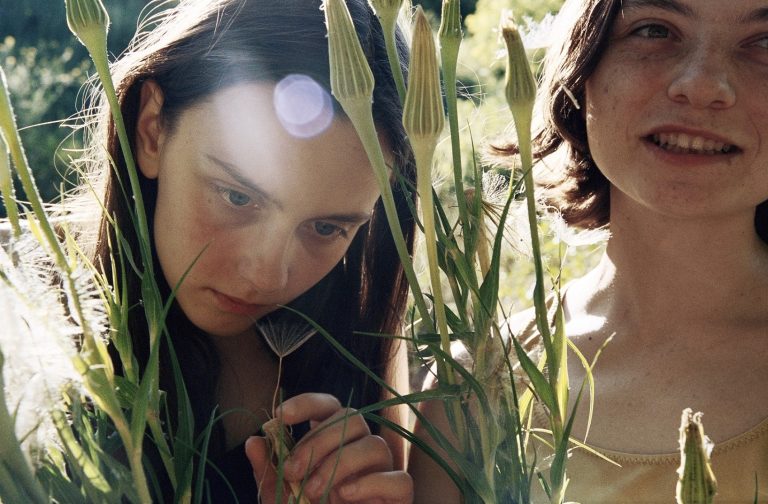
Photography by Yelena Yemchuk
Odesa being bombed with the maximum number of rockets ever for the last few days is crazy to think about. I remember the article that I wrote about you after we met because I was so impressed by your connection to the city. I gave it the headline "Eyes of Love" because I instantly felt you looked at Odesa with eyes of love.
In many ways, our journey and experience together taught me to look at Odesa with those eyes, too. It's a natural thing when you grow up in a city that you get a little jaded or pissed at it, like you might with your family, or people or situations close to you. We tend to get tired and not fully appreciate things in our lives, sometimes. I think you helped me rediscover Odesa for myself. Especially now, it’s gotten so much more special. I think that we've been sad and pissed for a few years, though, because you weren't able to publish it as quickly as we’d hoped.
The book was supposed to come out in 2019 but didn't for various Covid-19 reasons. The publisher I was working with kind of retired, so I had to start basically from scratch during 2020 to find somebody else to work with. In the meantime, I ended up publishing a whole other body of work, which goes back to Kuyalnik, which is the project that I've been working on for a long time, called Mabel, Betty and Bette. In the process of shooting the Odesa book, I met the most incredible lady who is one of my heroes, Anichka.
And we worked on a film you also helped produce, called Mabel, Betty and Bette, which we shot in Kuyalnik. Last summer, 2021, I found the publisher that I'm working with now, and the book is coming out at the end of May in Europe! When we set the printing date, never in my worst nightmares did I imagine that Ukraine would be at war.
I think the timing is so shockingly weird that it's almost… I don't know how to put it into words. I've just been to Odesa myself to attend the funeral of my grandmother. I've been here for a day and a half, and I've never seen Odesa like this. I've been anxious and very sad because my grandma was such a big part of my life. Every time I would come back to Odesa, she was always there, and Odesa was always there for me. But this time it was like, I can't say that it was half empty because it had more life than you’d imagine. People were still roaming around the streets.
And springtime is such beautiful time to be in Odesa, but you can feel that there’s three times less people in the city. The roads are almost empty. There are many, many, many Ukrainian flags on nearly every building. I think they commissioned the city cleaners to paint a flag on almost every building so that when Russians potentially come—and I hope they never come—they see and know that Odes belongs to Ukraine and will always belong to Ukraine, as all the real Odessites now think and consider and are hoping to be.
Your book, the project we did together, reminds me of a different Odesa that I left for many personal, global, and political reasons. Your book is such a beautiful memory and a reminder for me that the city can just disappear. That we should appreciate and cherish it. It's such a beautiful coincidence, and I perceive it as a beautiful omen that it's coming out now. I don't know if omen is the right word, but it gives so much hope.
To me, it's so important that people see what is at stake here.
Exactly.
What Ukrainians are fighting for is this amazing, beautiful place and its people. I've always been crazy about Ukraine, where I'm from. Ever since I left as a child, it's been such an important part of who I am as an artist and as a person, always. Everything I want to do, everything I want to make stems back to my childhood and my love for my country. I've always been proud to be Ukrainian, but I am particularly proud right now. I'm so blown away by the courage and strength of the Ukrainian people and by their love for each other and their land. I'm honoured that I had these five years to take these pictures and to meet all these people and photograph and share it with the world now. We just have to stay positive and know that there's no way Ukraine is going to go away. Cities will be rebuilt and it's going to be better than ever.
Absolutely. I have so many memories with you from the making of this book. All these crazy stories and things we experienced, many of them hilarious or adventurous, and some anxious times. We've been through a lot. Remember when it was like, completely not vacation season in Odesa?
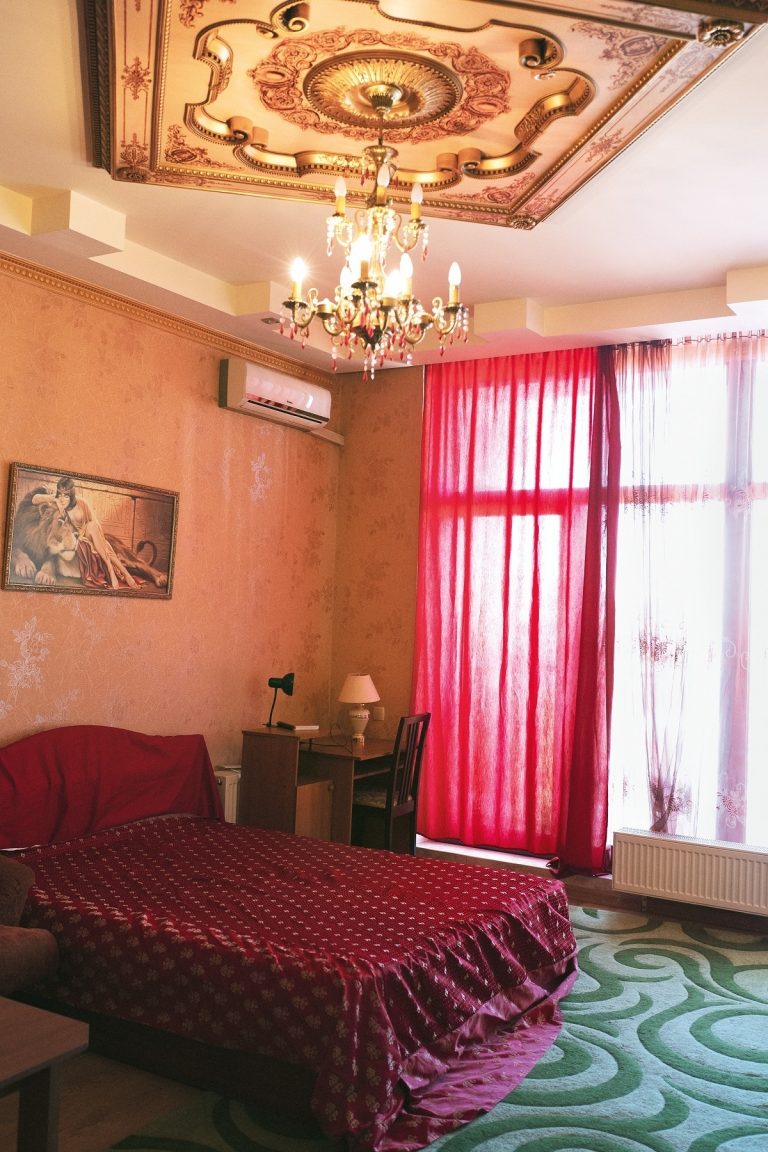
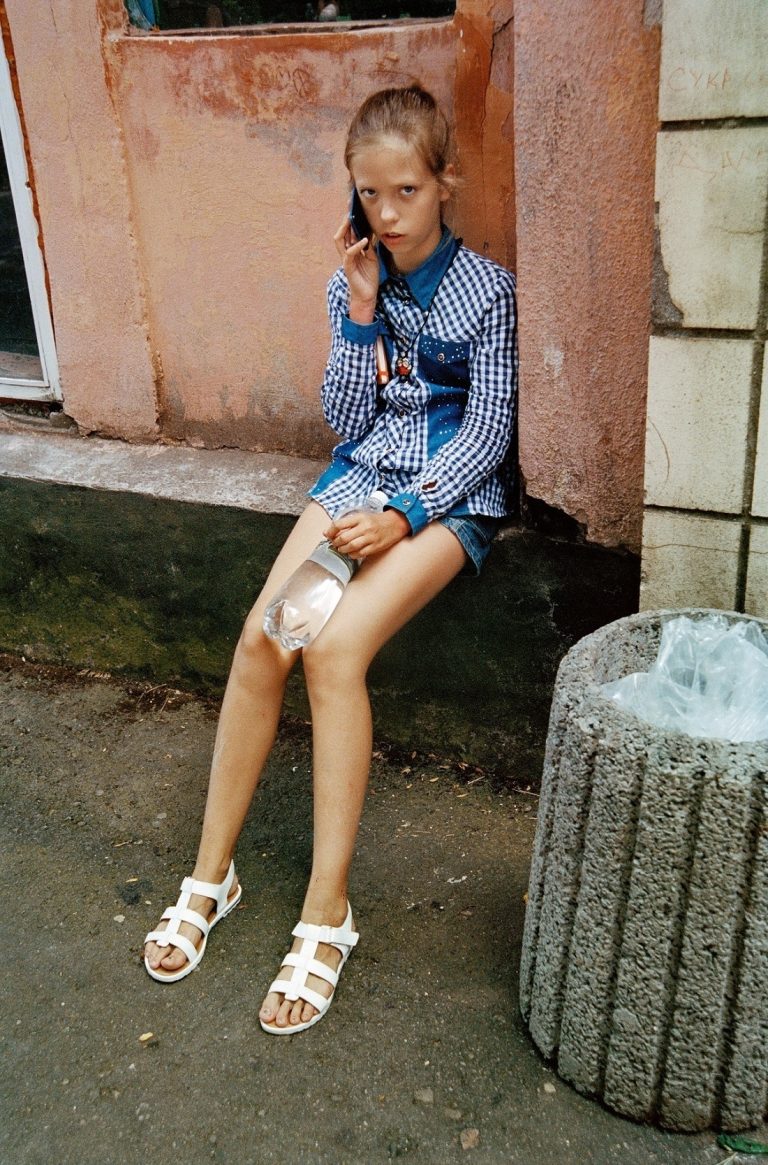
Photography by Yelena Yemchuk
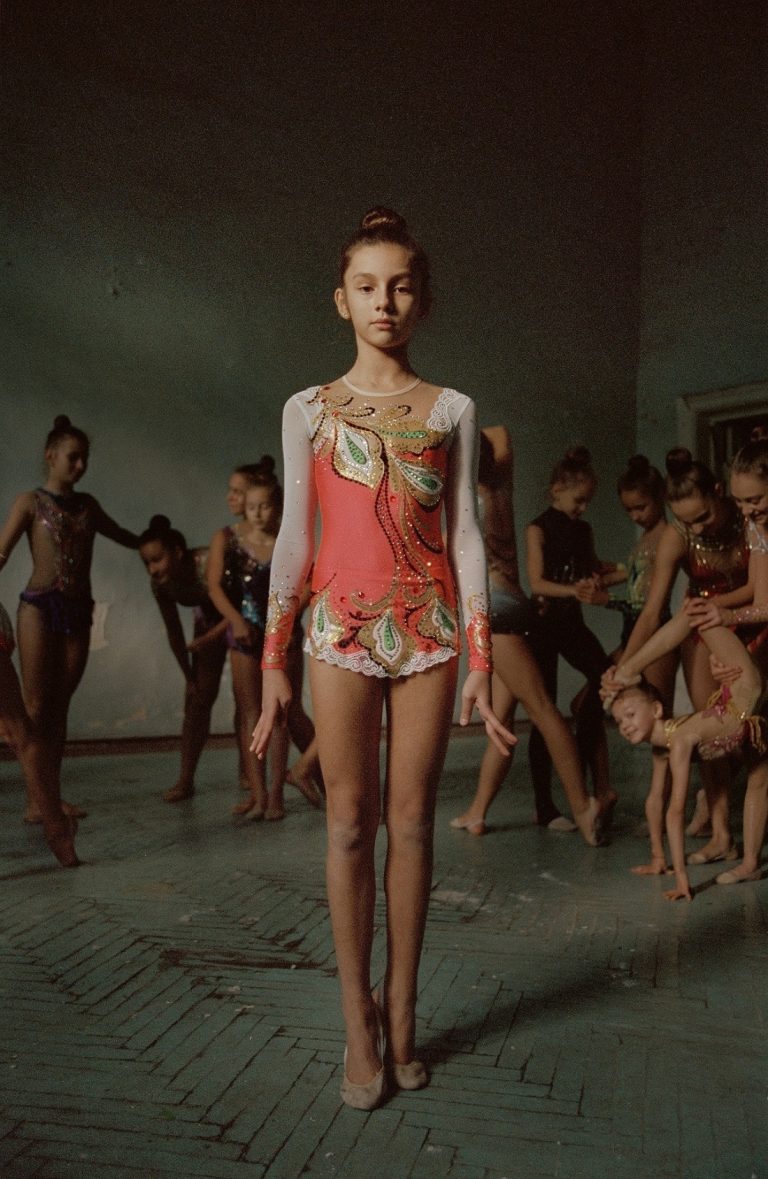
Photography by Yelena Yemchuk
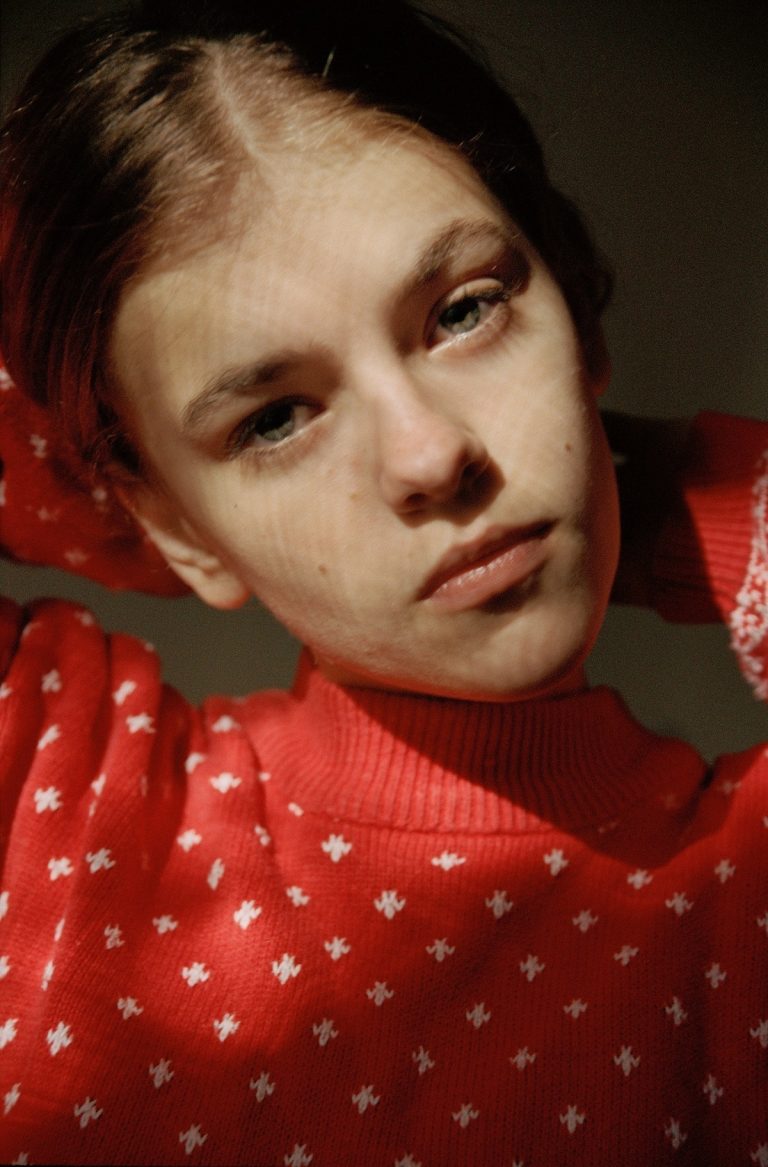
Photography by Yelena Yemchuk
It was October. Are you talking about the crazy storm and flood?
Yes! It was so bad that I wasn't able to drive home, and I had to stay with you in your hotel.
We went outside to get dinner, and by the time we walked back, the water was up to our knees.
The hotel you love, the Londonskaya, is quite a historic hotel. It's situated on the Primorsky, which is like a seaside boulevard. We got to the room and next door there were crazy sounds of people having the most passionate sex.
Oh my god, yes, the never-ending sex next door. We were cracking up. I’ve never heard people having sex for so many hours. In the meantime, it felt like the world was ending with this extreme lightning and thunder.
It sounded like the wrath of the gods or something. It sounded like an actual war in some way, it was so loud. I’ve never heard anything like that. I was so sure that the next day I would leave our hotel and there would be no Odesa, no Primorsky Boulevard, and that my car would be destroyed.
The next day, we went out and it was completely beautiful and empty. There's a couple of trees on the ground and stuff but it was fine. I feel like I want the situation that we're experiencing right now with the war to be like that storm. Storms can be really dangerous, so violent, so crazy, so scary, that we think it's the end, but I really want us in the end to go out in the street and see how peaceful and beautiful it is and that we're alive, and everything's good. So yeah, I have that metaphor for how I want things to be.
But how do we go on and stay positive when it’s so dark and horrible?
I think many people in Western countries who are outside Ukraine don't fully realise that for Ukrainians, it's not just a war or a conflict where someone comes and bombs you then leaves or grabs your land. It's an existential war. Putin’s ambition is to eliminate the Ukrainian identity and culture fully. He wants to perform complete erasure. It’s an unexplainable feeling when someone wants to just wipe you out, even women, elderly people, and children. It shakes you to the core.
I think every Ukrainian remembers what was going on February 24th, when the war was declared at 5AM Ukrainian time. I was in New York on my sofa, around 9PM, not so late in the evening. I don't remember anything factual about the day. For the first few days, I just remember lying in bed and trembling so badly, just physically trembling.
The next step was just trying to help, just doing something. Every Ukrainian was like that. You feel this existential fear and the scope of the tragedy, you can't help but do something. It's an almost physical ache to do that—a physical need to do something. That was a big moment of unity.
As with every other nation, like a family, you have conflicts, and you don't fully agree on everything. Then something happens and you all come together and become so much stronger. That moment is a turning point, not just in our lives but in contemporary Ukraine. It might be one of the most important moments in Ukrainian history, even though we've been at war with Russia many times before. It's not the first time they’ve tried to eliminate us.
But coming back to your book—what are maybe one, or two, or three photographs that are most special to you? What comes to your mind first?
I think when I look back at it, the photographs that touch me the most are the ones of the people that I became friends with. I feel like I have such an affinity and love for them. You know what I mean? It would be pictures of Liza and Jora, Anichka, Sasha, and Dasha. When I look at them – it just brings all the memories back and I am there in the city I love so much.
All of those people are refugees now, for the record.
Exactly. And the pictures of the two best friends, Miraslava and Lera, that we photographed separately. I'm in touch with Miraslava and her family is still in Odesa. They're volunteering and helping the elderly. I look at the photograph of her face in that red sweater, that tiny kid that we met and photographed in 2016, and she's 20, 21 now. She’s a young woman living through a war now and her innocent, sweet face is never going to be the same. No one is ever going to be the same. Everyone there is forever changed. That to me is very painful. At the same time, I'm so glad I've captured the innocence because a lot of that innocence is going to be gone for most people.
Innocence is a very good way to put it.
I also feel like there's so much humour in the photographs because there's so much humour in Odesa. I found it everywhere. I know that will always be there, it's just part of the city.
Yes, for sure.
But the innocence, I feel like childhood for this generation, it's not going to be the same. You pray that whatever is happening right now is going to be for the benefit of the new generation to come—the ones that haven't lived through the war. That they will have a better Ukraine, a more unique and stronger Ukraine that is its own powerful, amazing place.
It's unbelievable. I can't believe the strength and the power of people, but that's because they know what they're fighting for. They know what they're protecting.
Yes. It's all about love at the end of the day.
It all comes back to love. This is my love letter to my favourite city ever, anywhere. I cannot wait to go back there. I cannot wait for me and you to go back to Odesa and help rebuild.
Oh yes, we must help rebuild.
We're going to be there, and it's going to happen, we must stay in that mindset. I'm very proud to share these images of my favourite city and its amazing people.
I'm proud to be part of it. I've put a lot of heart in it, too.
So, so much! I miss it so much. I knew that we were going to talk today and I wanted to get in your car and go take pictures on the beach and go to our favourite Ukrainian restaurant and have some borscht, cucumber tomato salad, and have our coffee. Then just go somewhere else and meet our friends for a drink, hang out, and make plans for the next day. There are no fonder memories that I have than of making this project. This has been such an important project for me, not only because I knew it was important for whatever reason subconsciously, but because I have never looked forward more to anything I've ever done. My trips, every time I knew I was going, I was so happy.
I promise you it's all going to happen again. I just know it.
You too, baby. Thank you so much. It's been a kind of therapy. I saw the city a few days ago, and I was kind of estranged by it a little bit.
I'm sure, I can't even imagine.
We worked on our relationship with Odesa just now. And there will be new relationships that we build with the city, no matter in what state we find it. But as I told you, I promise we will do all the mischievous things we plan to… I just know we are going to do them.
For sure.
In a bright, smiley, dreamy, crazy, funny, nostalgic, maybe futuristic, soon-to-come Odesa.
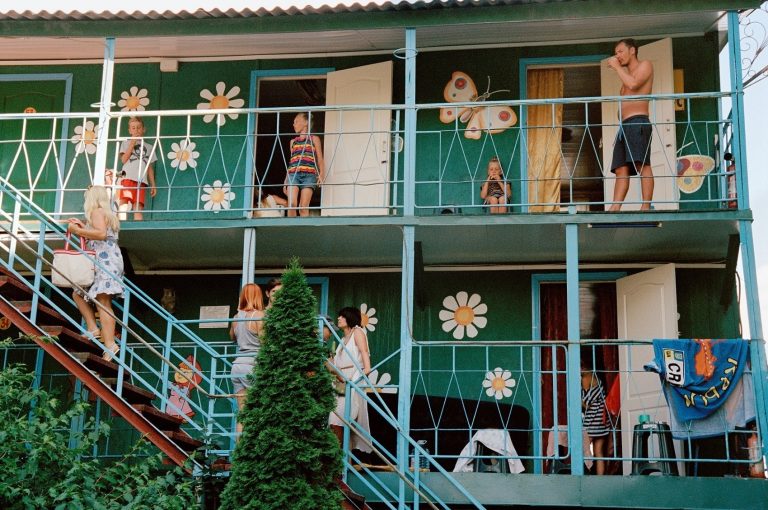
Photography by Yelena Yemchuk
Related Articles

Liberty 150 x150 curated by Leith Clark: The Founder Interviews

Liberty 150 x150 curated by Leith Clark: The Founder Interviews

Liberty 150 x150 curated by Leith Clark: The Founder Interviews

Liberty 150 x150 curated by Leith Clark: The Founder Interviews
